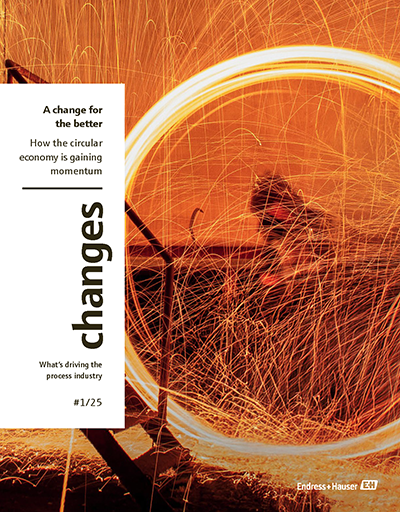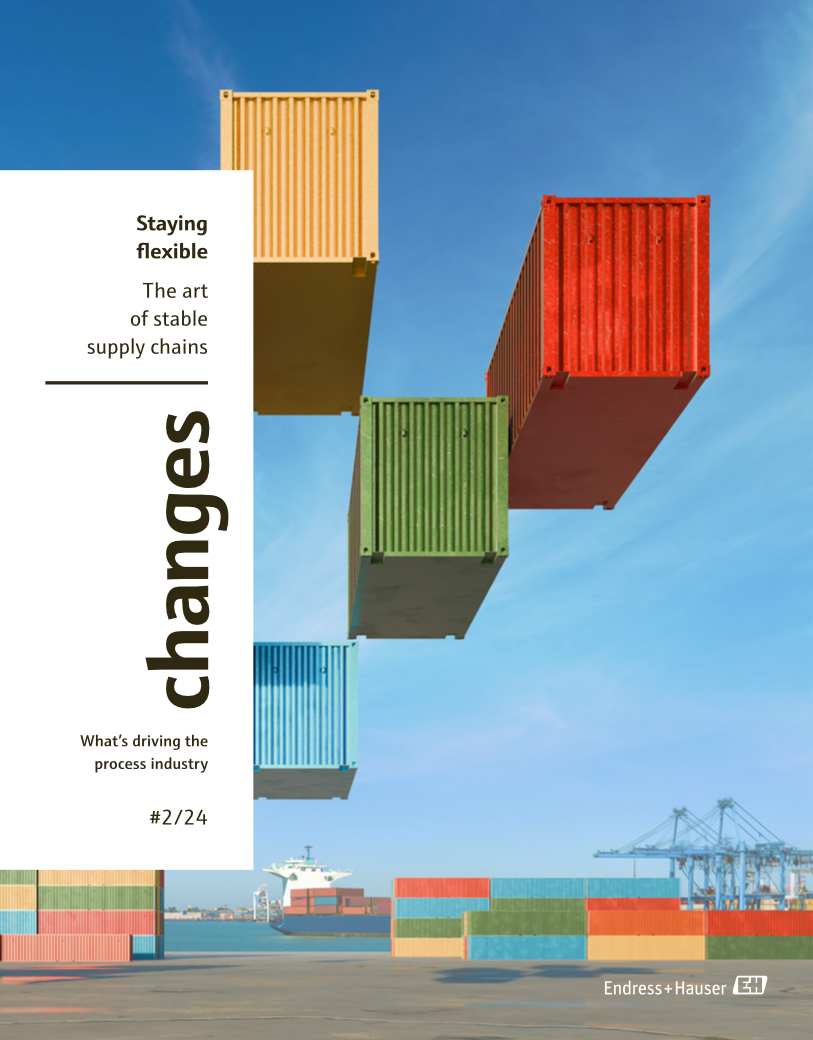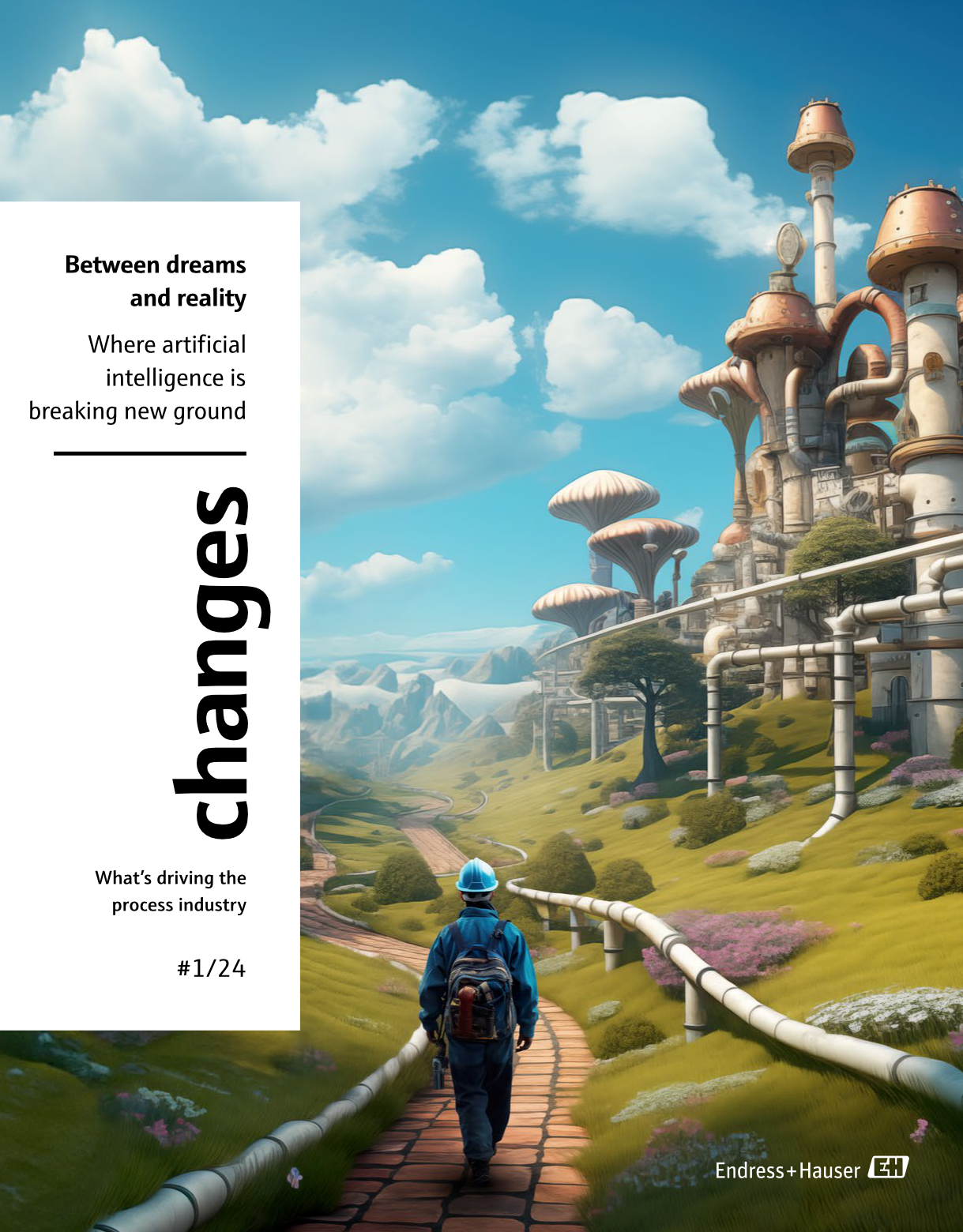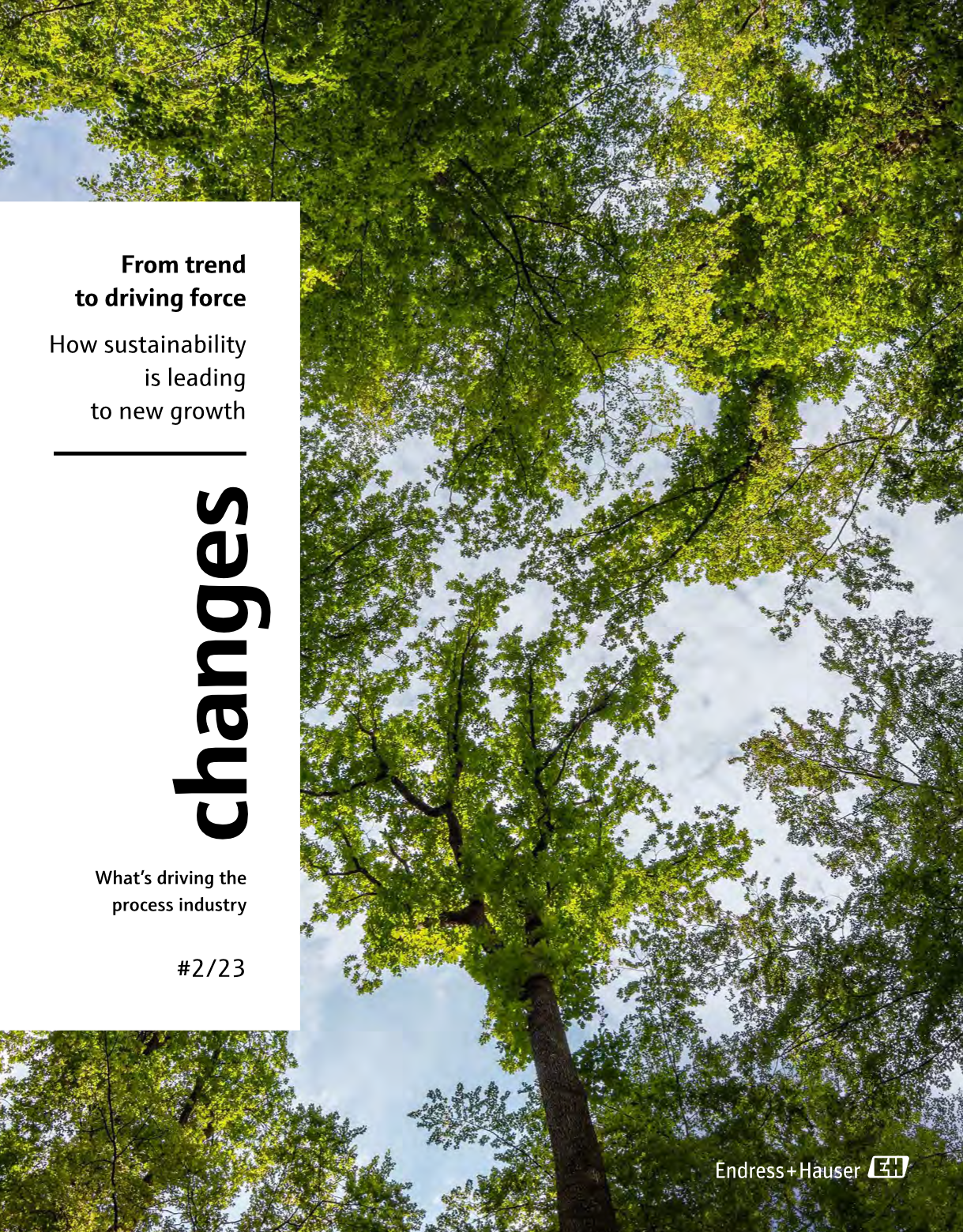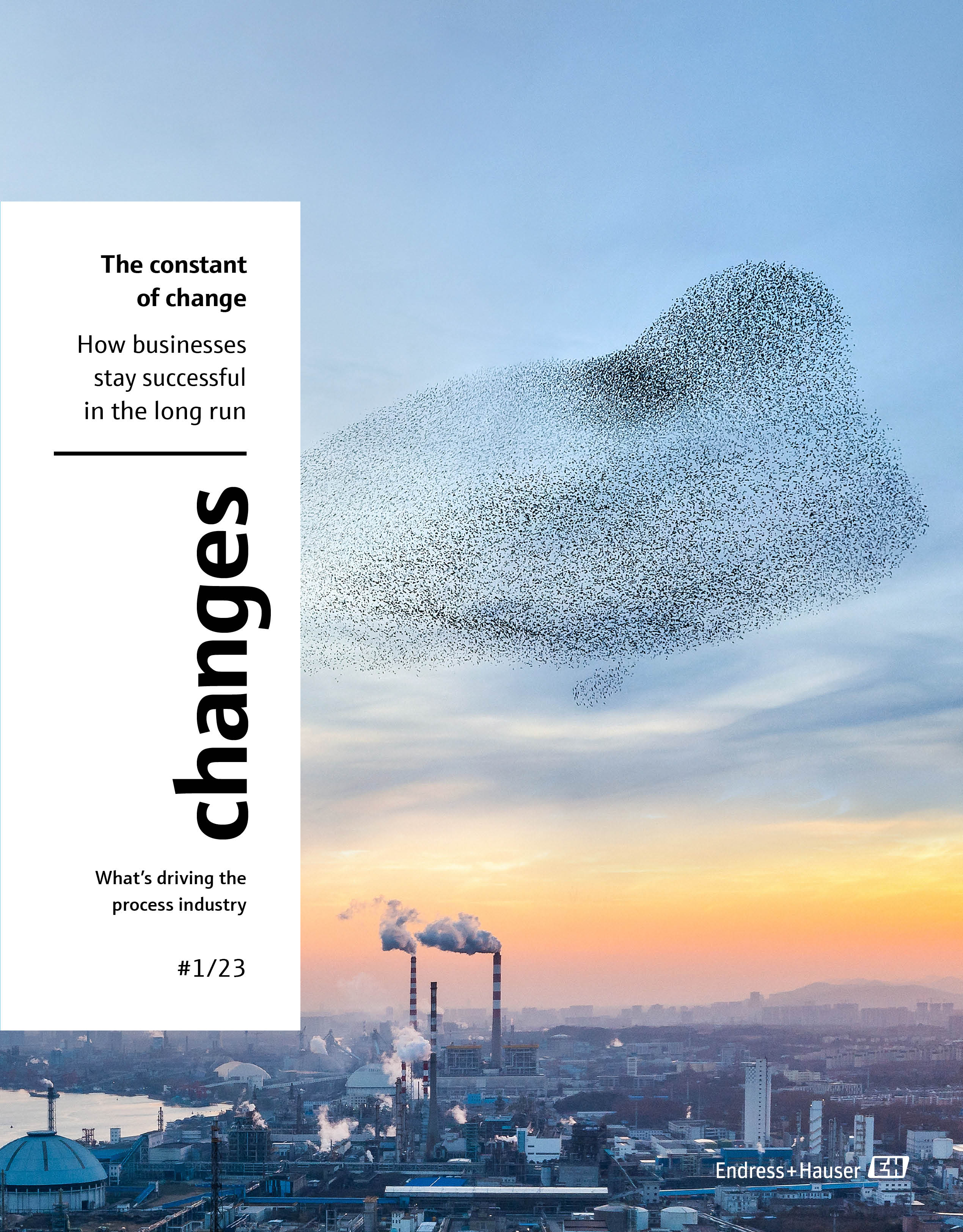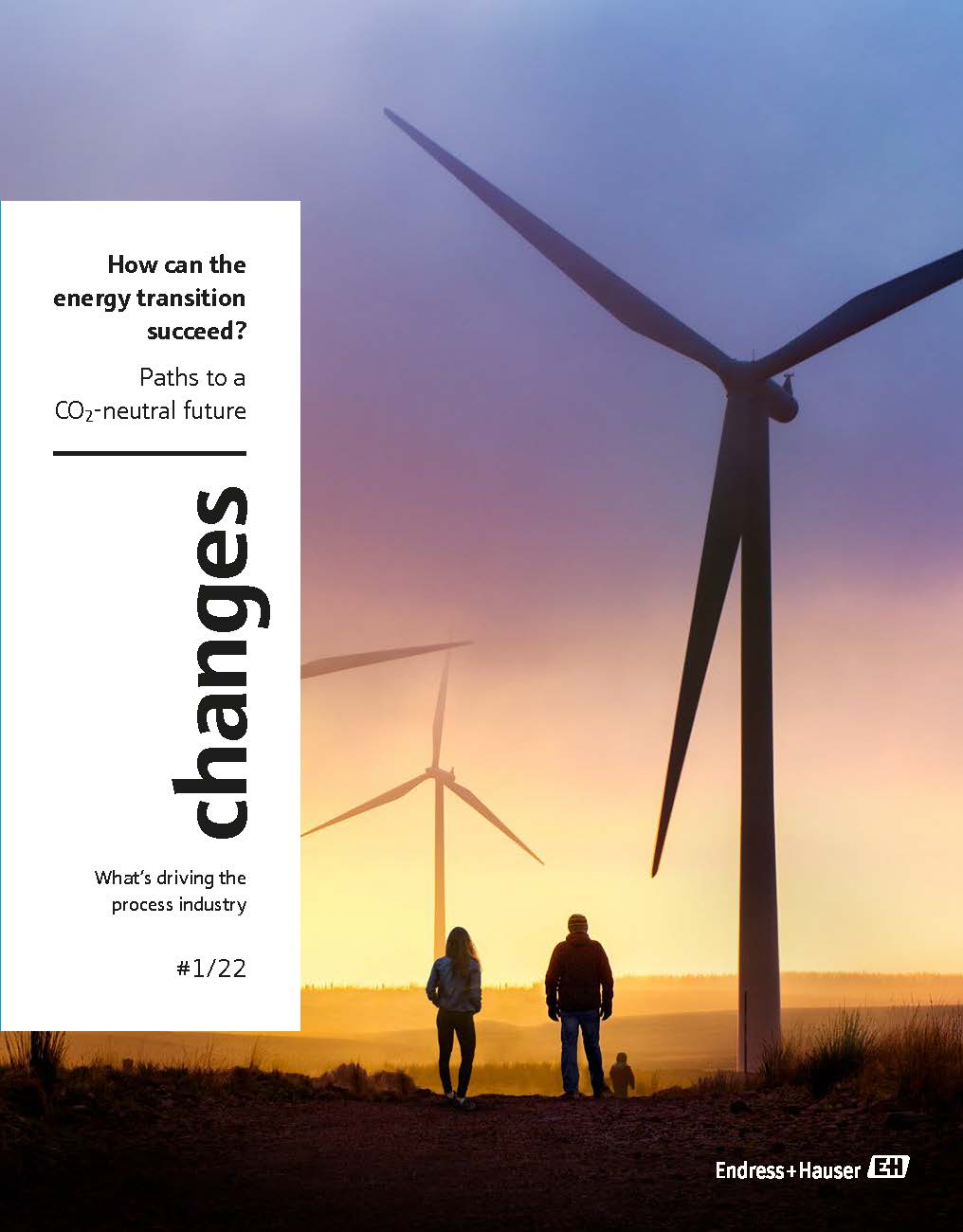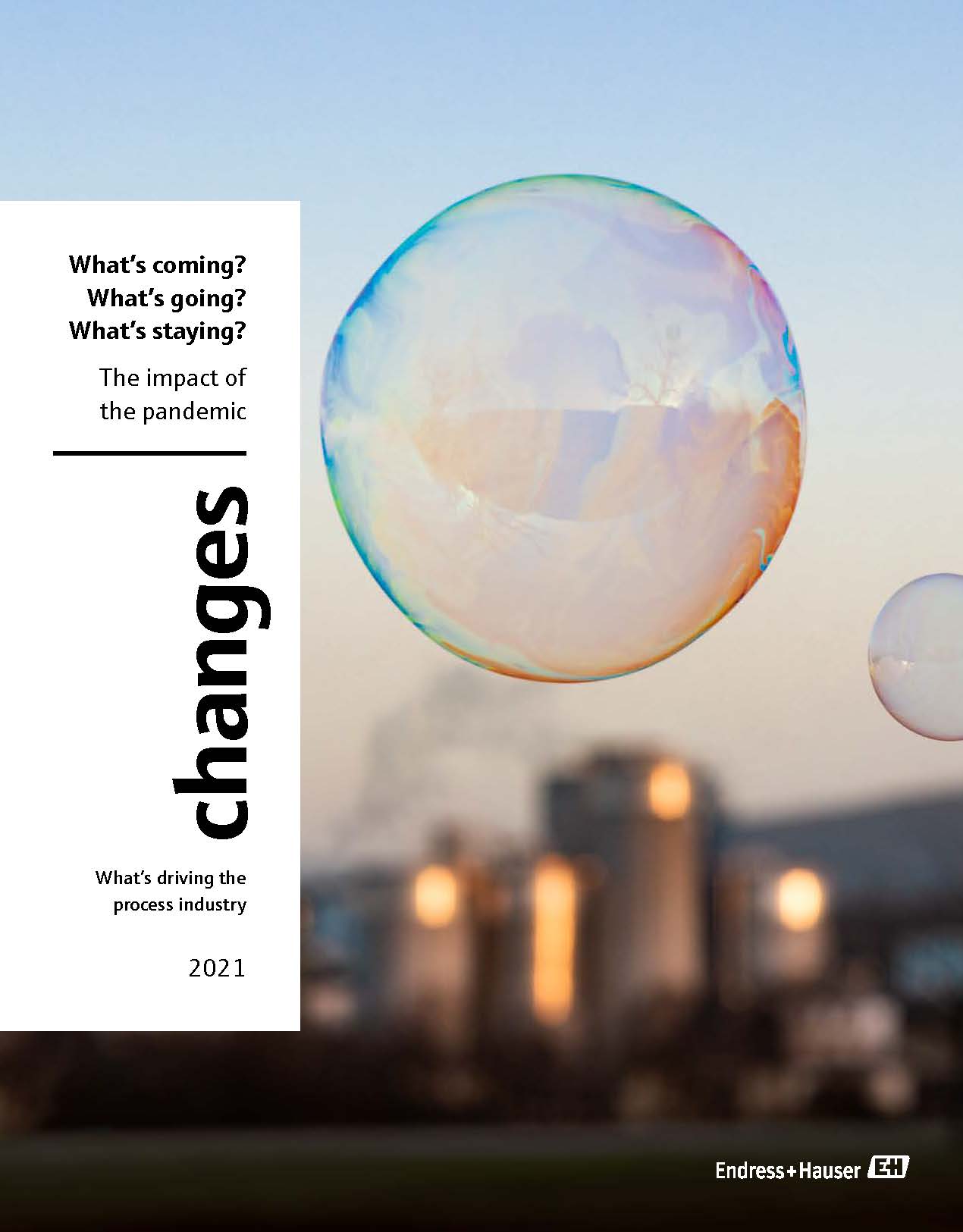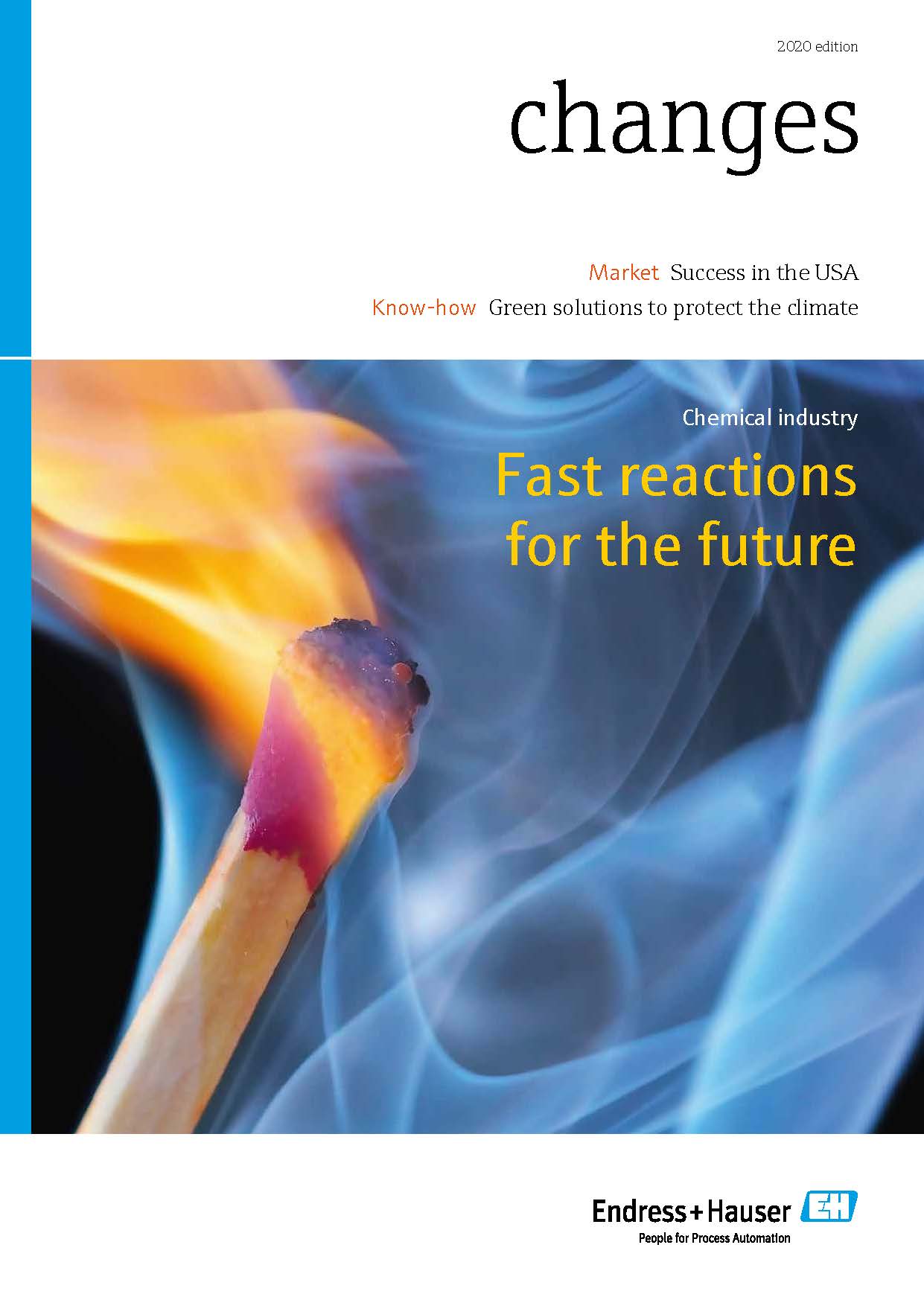“Climate change is on the minds of all generations”
Although a challenge for industry, climate change is also driving innovation. BASF Chairman Martin Brudermüller and Endress+Hauser CEO Matthias Altendorf shed light on the issue.
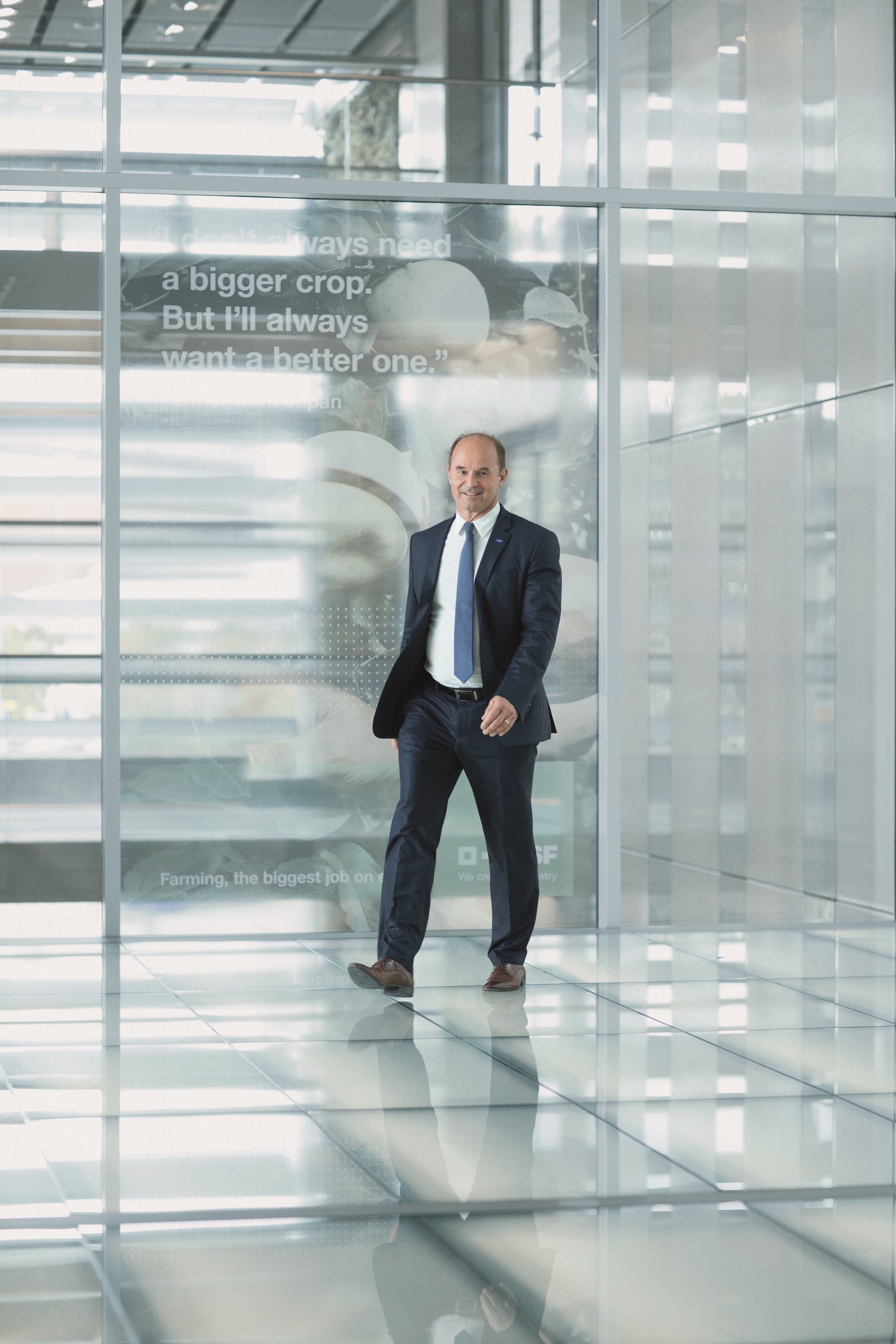
Mr Brudermüller, Mr Altendorf – young people are heading to the streets in many countries to demonstrate for protection of the climate and the environment. What’s your view of the protests?
Brudermüller: Climate change is one of society’s biggest challenges. Young people are demanding that we do more to tackle this problem, which I can fully understand. After all, it’s about their future. From what I can see, however, climate change is on the minds of all generations. In our company, both young and older employees are discussing this issue. They are convinced that as a chemical company, we can make a bigger contribution to better protection of the climate.
Altendorf: The protests illustrate how much this issue is driving people. But there is also an underlying development that has been noticeable for some time now. The question of meaningful work is becoming increasingly important during interviews with job applicants. They’re seeking ‘good’ employers, and ‘good’ implies how the company is contributing to our overall well-being as a society.
What does Endress+Hauser contribute exactly?
Altendorf: We help our customers improve their products and production processes in many important facets of daily life. Our customers ensure that we drink clean water and eat safe foods, that we have access to effective medications and that our infrastructures are dependable. We help customers like BASF manufacture important chemical products using less energy and fewer raw materials, but at the same high quality, while releasing fewer harmful emissions and ensuring that people and the environment are not put at risk.
How does BASF see this?
Brudermüller: We want to contribute to a world that offers everyone a livable future with a better quality of life. We’re working together with our customers and partners to ensure optimal use of our existing resources. We’re looking for innovations that make mobility, energy generation, transport, nutrition or living more efficient and that prevent or reduce emissions. Electromobility is one example. This will only work with high-performance batteries – and our researchers are working on the battery materials of the future.
But at the same time, the chemical industry is one of the largest emitters of greenhouse gases. Is there anything you can do here?
Brudermüller: Protection of the climate and the environment is firmly anchored in our corporate strategy. We have committed to becoming climate neutral by the year 2030. For our industry, which is very energy intense, that’s a very ambitious goal. We’re reducing CO2 emissions at our production facilities at the same time. We have scaled them back by 50 percent since 1990, even though production has more than doubled. We did that by constantly improving efficiency. Given what we have achieved, further savings will be increasingly more difficult. Our researchers are therefore working at full speed on groundbreaking low-CO2 technologies and processes. I am confident that we will come up with innovative solutions. Our ultimate goal is to avoid CO2 emissions in the first place.
“We want to contribute to a world that offers everyone a livable future with a better quality of life.”
Dr Martin Brudermüller
Chairman of the Board of Executive Directors at BASF SE
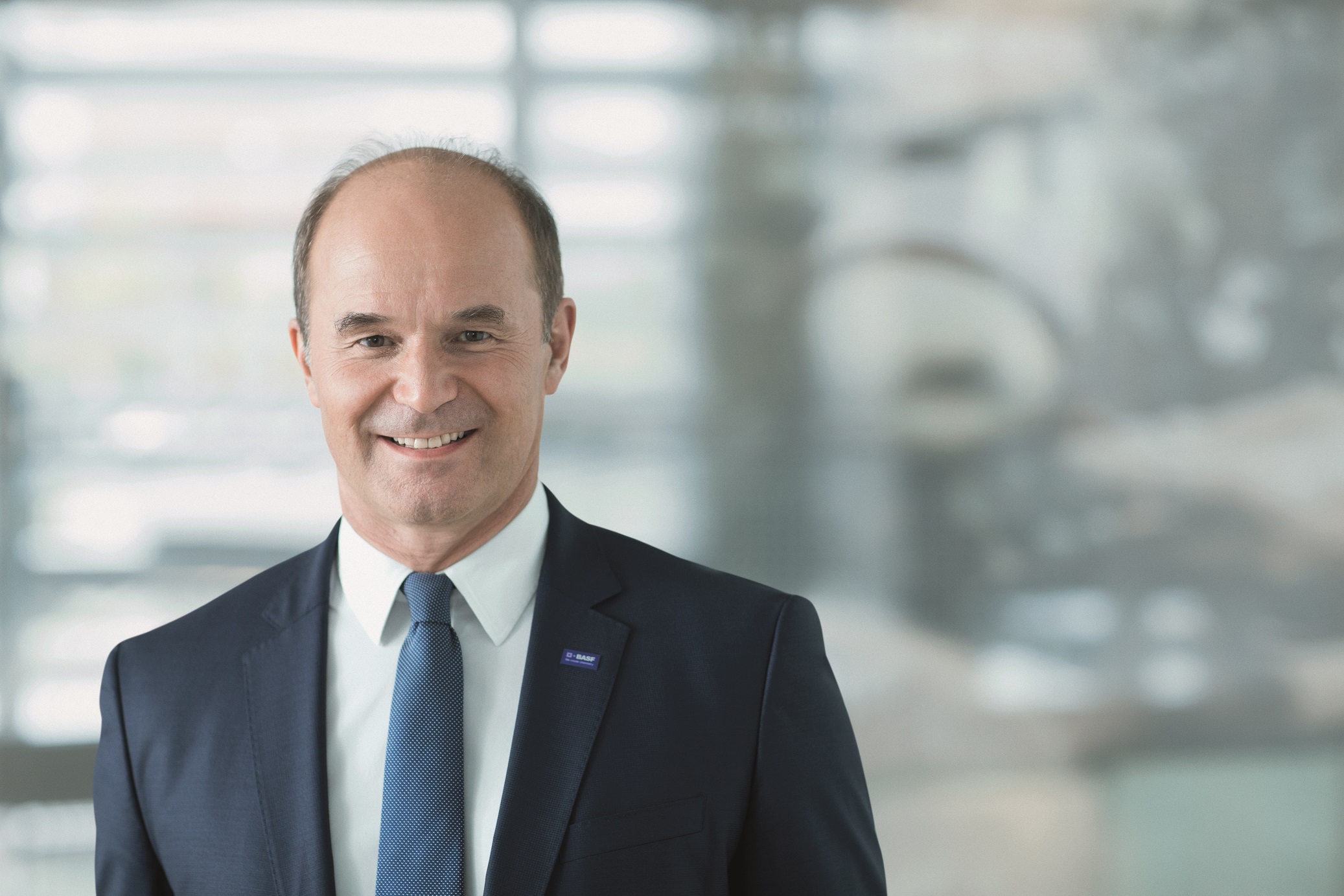
BASF wants to be a leading manufacturing operator. What does that mean?
Brudermüller: We want to be the globally leading chemical company for our customers. What’s really important here is that we operate our systems in a safe, efficient and reliable manner. In order to better dovetail services such as engineering and maintenance with our production processes, we have reorganized parts of the operations-related services. The goal is to create close proximity to the operation and strong production teams. Successful production is a team effort.
And how can Endress+Hauser help here?
Altendorf: We have products, solutions and services tailored to the needs of the chemical industry. This allows us to help customers address their challenges. Plant availability, safety, efficiency and ecological footprint are the major issues for this industry. We have been offering life cycle management solutions for a good 20 years – and BASF was one of the first customers. With the industrial Internet of Things, this whole area is once again acquiring a new dynamic. Today it’s much easier for us to read the data from the field instruments and the process, then prepare it and link it to other information. This enables us to optimize not only the business processes within the company but even entire value chains beyond the borders of the company. We’re working together with BASF on these types of solutions.
Mr Brudermüller, as Chief Technology Officer at BASF, you are also responsible for research and development and want to make the company even more innovative. How do you want to achieve that?
Brudermüller: Our research and development area is the heart of BASF. Innovations have made us the world’s leading chemical company. We can be proud of all the knowledge, experience and resources that are combined under one roof. The organizational changes we have made help us to understand the needs of our customers even better. Together with their colleagues in marketing, production and sales, many of our researchers are now working in much closer proximity to the customers. We have a clear goal: We want to develop creative solutions for our customers faster.
Altendorf: That’s why customers buy from BASF, and the reason why they buy from Endress+Hauser. When we claim in our mission that we help our customers improve and manufacture their products more efficiently, we’re talking exactly about this competitive aspect of innovation. Many of these innovations are created in collaboration with customers and partners. We’re currently learning a lot about the needs of our large customers by working closely together with them. Our Industry 4.0 solutions are being developed through continuous dialogue with pilot customers. BASF is a pioneer in this area when it comes to Ethernet in the field and the integration of process data into the ERP system.
“Many innovations stem from collaboration with customers,” says Matthias Altendorf, CEO of the Endress+Hauser Group.
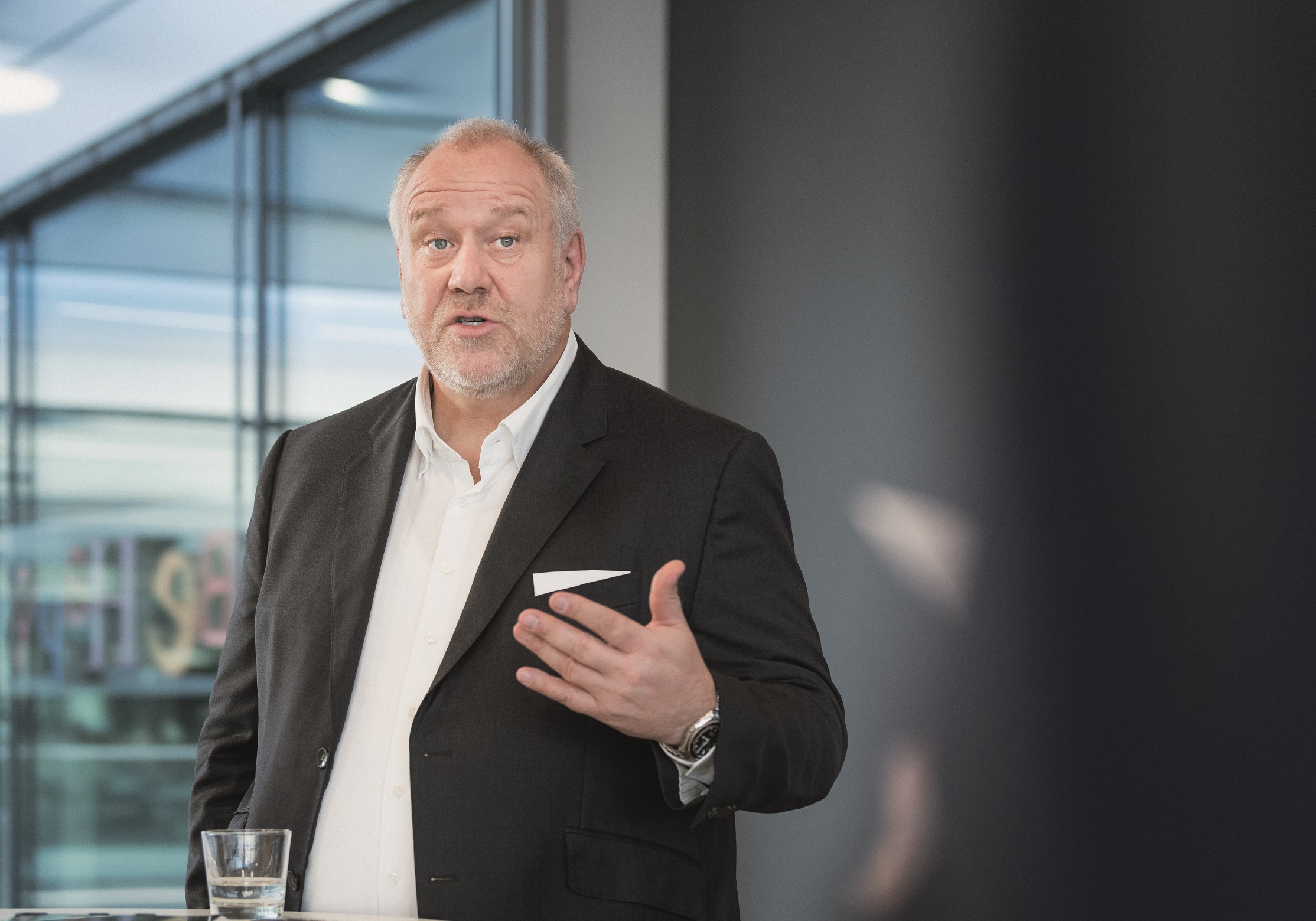
What significance do contractors have for you and what do you expect from them?
Brudermüller: Specialist firms and other external specialists have made a big contribution to the success of BASF for decades. We apply very high standards in the selection process. Only those companies who meet our requirements and provide high-quality, reliable services can work for us. The working relationships with proven contractors are usually long.
Altendorf: The collaboration between BASF and Endress+Hauser is one of the longest and most intense customer relationships in the chemical industry. The company is one of our largest customers worldwide. To me it’s not the volume of business that is so noteworthy but the fact that a close and trustworthy relationship developed over time. During my many visits to BASF in Ludwigshafen, I had the chance to significantly expand my own knowledge in the area of process engineering. We learned a lot from one another through these joint projects. This partnership spawned a lot of good of things in the area of instrumentation and automation for the chemical industry.
Mr Brudermüller, you have spent your entire career at BASF. How do you make sure you don’t get tunnel vision?
Brudermüller: I’ve been working for BASF for more than 30 years. I’ve become familiar with every aspect of the business, from the lab to marketing and production. Each new station brought with it new responsibilities and demands. Since I was constantly exposed to new things – people, responsibilities, countries – I was never at risk of getting tunnel vision. And I’m still as enthusiastic about chemistry as before. Discovering new things, making products better and driving innovations forward is simply an exciting thing for me!
Mr Altendorf, you’ve worked for the same company for more than 30 years as well. Where do you acquire the necessary fresh ideas?
Altendorf: What’s very important for me is external stimulus. I travel on business around the world and meet a lot of people from different cultures: customers, our own people, industry colleagues, representatives from other companies. What’s also exciting is talking with young people, such as our apprentices or university students. What’s fundamental for me is to see what’s happening outside of our industry. I deliberately take the time to learn new things and educate myself further. That helps me a lot, personally and professionally!
Published 01.01.2020, last updated 11.10.2022.
Dive into the world of the process industry through new exciting stories every month with our «changes» newsletter!
